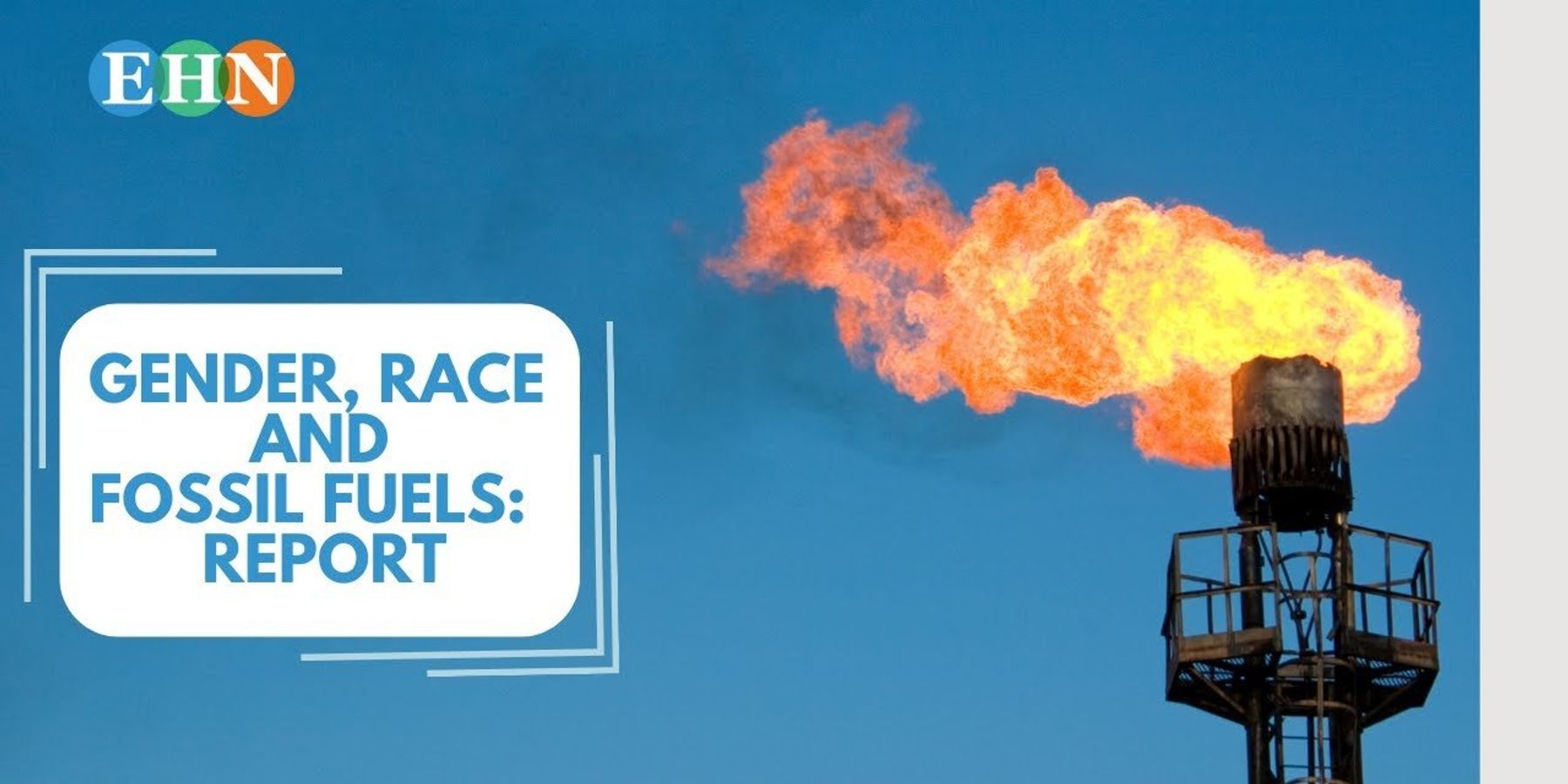The fossil fuel industry is disproportionately harming low-income and minority women: Report
“Women, in all of their diversity, must be at the center of climate and energy decision-making.”
HOUSTON — Black, Latine and Indigenous women are disproportionately suffering from the fossil fuel industry in North America, according to a new report.
The report, published by Women’s Earth and Climate Action Network (WECAN), analyzed existing research about fossil fuel extraction and related facilities to explore the unequal impacts on women of color in North America. WECAN identified nine regions that appeared most frequently, including the Gulf Coast, to focus additional research. From this, the group highlighted six issues that appeared most often in research associated with the fossil fuel industry: environmental racism, increased caretaking responsibilities, pollution, fertility and reproduction impacts, “man camps” and mental health effects. Impacts were either related to race, income status, gender identity or a combination of these three.
“This is an egregious list, and these [fossil fuel] activities must be stopped,” Osprey Orielle Lake, report author and executive director of WECAN, told EHN.
The report highlights an “indisputable connection” between the fossil fuel industry’s practices and negative impacts to Black, Indigenous, Latine, and low-income women’s health, safety and human rights.
The report points to fossil fuel pollution links to infertility and pregnancy complications, as well as rising temperatures’ links to preterm births, stillbirths, gestational diabetes, hypertensive disorders and endocrine dysfunction.
For example, in the Eagle Ford Shale region of Texas, flaring was more likely to occur near Latine residents and women living within three miles of the
Eagle Ford shale basin had a 50% higher chance for preterm births than those living farther away, according to a 2020 study. Pennsylvania women living near active fracking sites had 40% and 30% increased risk of experiencing preterm births and high-risk pregnancies, respectively, according to a 2016 study.
The authors also highlighted that air and water pollution, and climate impacts such as extreme heat, often add responsibility for women who are often taking care of children and homes. Women will “continue to be disproportionately responsible for reproductive labor,” for unpaid household tasks like dishes, cooking, cleaning, and taking care of elderly family members and children.
“When water and air become polluted, making elders and children at home sick, and safe food and water supplies hard to obtain, it imposes significant stress and strain on women’s daily lives,” the authors wrote. “For example, mothers are 10 times more likely than fathers to take time off of work to care for sick children, placing women at greater risk of lost wages or being let go.”
Fossil fuel production can also bring about transient work camps, or “man camps” — defined as the temporary residence areas for oil and gas project workers, predominantly young men — which have been linked to increased rates sexual assault and violence against women.
“Extensive research points to the hyper-masculine nature of man camps, which leads to social isolation, lack of self-care, and significant alcohol and drug use, as well as an increase in demand for sex trafficking,” the authors wrote.
Similar to Canada, in the U.S. only 2% of land is designated for Indigenous reservations, but those reservations hold about 20% of the country’s fossil fuel reserves, placing Indigenous women at an increased risk from man camps, amidst an epidemic of missing and murdered Indigenous peoples.
This combination of pollution and physical health effects, increased unpaid caretaking, and the potential for violence leave women more susceptible to mental health effects from fossil fuel production, the authors write, citing numerous studies from Colorado to Pennsylvania that linked oil and gas extraction to depression, anxiety and chronic stress.
These impacts are expected to grow as the fossil fuel industry expands. The International Energy Forum anticipates that liquified natural gas trade, for example, will increase 25% by 2028. Petrochemical facilities looking to meet the growing demand for plastics, which is expected to triple by 2060, are also expected to expand.
The report notes the Gulf Coast is leading in the nation for liquified natural gas production and expansion. At least six facilities were proposed in Texas this year, with half moving forward in construction.
Additionally, the Gulf Coast’s petrochemical and oil refinery presence is the largest in the nation. In 2020, of the top 10 refineries that have cancer-causing benzene levels above the U.S. Environmental Protection Agency’s action levels, six were along Texas’ Gulf Coast and are located within predominantly BIPOC (Black, Indigenous, and people of color) communities. Since then, the number of refineries above the EPA action level have decreased to six, but the Houston-area Pemex (formally Shell) Deer Park Refinery is exceeding the standard more than any of the other remaining refineries and its annual emissions increased to 17.3 micrograms per cubic meter in 2023 — nearly double the EPA’s action level. Authors of the report note that the percentage of the population that is Latine in Deer Park is nearly double the national average, at 36.8%.
At the same time, climate change is expected to accelerate through the fossil fuel industry’s climate-warming emissions, and roughly 80% of climate refugees are women. This displacement could contribute to further issues finding work, leading to higher risks of physical and sexual violence.
“There is an urgent need to address these crises because the lives of women and their communities are at stake,” Lake told EHN. “The report calls for a just transition that addresses the needs of communities most impacted and vulnerable to the climate crisis and continued reliance on fossil fuels.”
In addition, the group put out a series of recommendations for banking institutions that finance or in some way monetarily support fossil fuel companies, including: divesting, adhering to human rights recommendations from the United Nations and adhering to commitments from the Paris Climate Agreement.
“Women, in all of their diversity, must be at the center of climate and energy decision-making,” Lake said.














